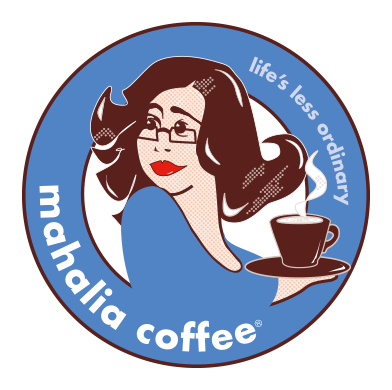Why We Expect Free Coffee, But Not Free Beer
Why We Expect Free Coffee, But Not Free Beer
There’s something fascinating about loyalty in the café world. Coffee drinkers — our everyday regulars, our sleepy-eyed morning crew, our laptop crowd — will proudly whip out their loyalty cards, eager for that tenth cup “on the house.” But no one’s waving a stamp card at the local pub asking for a free pint after their ninth schooner. So why do we, as coffee drinkers, feel entitled to a loyalty reward, when beer drinkers simply pay, sip, and move on?
After twenty-odd years behind the machine — first as a cook, then barista, café owner, and now coffee roaster — I’ve seen a lot of people.
Coffee as a Daily Ritual, Not a Luxury
Coffee sits in this strange cultural space — it’s both a daily necessity and a small luxury. Most of us grab one (or three) every day, so it feels like a part of who we are. That regular interaction builds a relationship — not just between you and your caffeine fix, but between you and the people making it.
When you buy coffee, you’re not just purchasing a drink; you’re buying a ritual, a bit of human connection, and maybe a smile to start the day. Over time, you feel like you belong to that café. So when there’s a loyalty card, it feels like a thank-you — an acknowledgement of that relationship.
Beer, on the other hand? That’s a treat, an occasional social reward. We might love our local pub, but we don’t usually drink there at 8 a.m. on the way to work (well, hopefully not). The connection isn’t about routine — it’s about escape.
Perceived Value vs. Emotional Value
A pint of beer costs more than a flat white, but it doesn’t carry the same personal touch. Beer comes in standard serves, from kegs, often poured in identical ways across hundreds of pubs. It’s transactional. Coffee is personal — made just for you, the way you like it. “Strong flat white, extra hot, a magic, make sure it's just how I like it” It’s bespoke service at fast-food speed.
That level of personalisation makes people feel emotionally invested. When you invest emotionally, you expect recognition. The “buy nine, get one free” punch card is less about saving money and more about being seen as a loyal customer.
The Psychology of Everyday Reward
Psychologists call it variable reinforcement — that dopamine hit from knowing a reward is coming. Cafés use loyalty systems to keep customers engaged, sure, but customers use them as a mini-motivation loop. That free coffee isn’t about value; it’s about validation.
Beer drinkers already get their dopamine from, well… beer. The act of having one is the reward itself.
From Community to Commerce
Over the years, café culture has evolved into something that sits halfway between local community hub and small-scale hospitality theatre. Regulars have their table, their mug, and their barista who remembers how they take it. That’s a powerful connection — and the loyalty card is the tangible token of it.
Pubs, meanwhile, trade on mateship, not membership. Loyalty there is unspoken. You don’t need a stamp card to feel like part of the crowd; you just need to keep showing up.
The Takeaway....
Maybe it’s time we stopped thinking of café loyalty programs as handouts and instead saw them for what they are — a handshake. A small “thank you” between maker and drinker. Because in a world where everything’s automated and anonymous, that little stamp — or app ping — says, Hey, we notice you.
And maybe that’s why we never expect a free beer. The bartender pours; the barista connects. Coffee is a conversation — and every tenth one’s on us.
